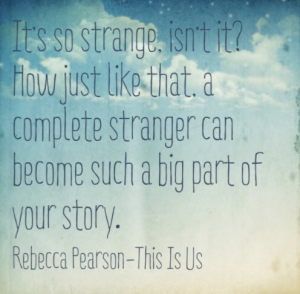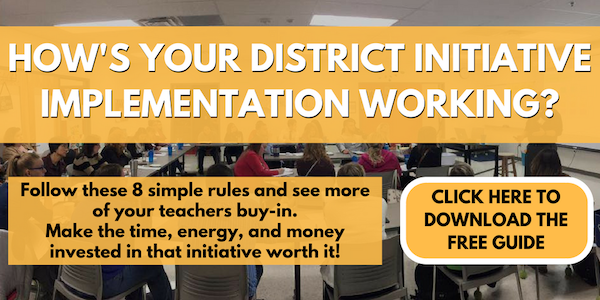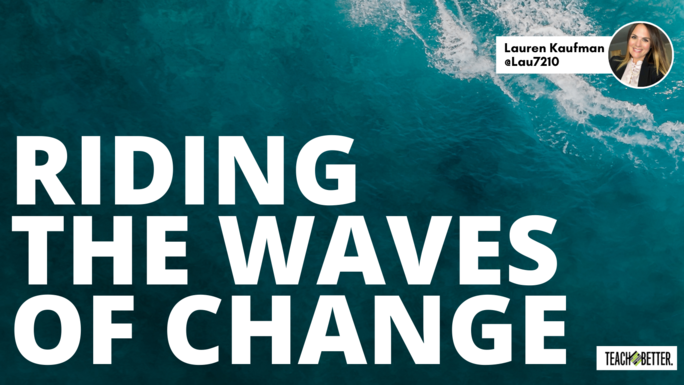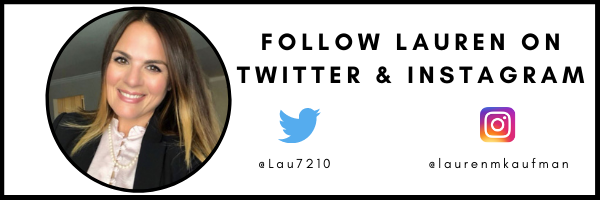TL;DR:
- Change is inevitable.
- We should welcome the changes to the way we approach curriculum, instruction, and assessment.
- Those in the education world should research, ask good questions, and include all the various stakeholders who live and interact with the experiences on the frontlines.
- We need to make teaching and learning practices more accessible for students and families.
The Crashing Waves of Change
Recently, I was sitting on the Long Beach, New York Boardwalk carefully watching the waves of the ocean crash on the sandy shoreline. As I observed the formation of each wave, I couldn’t help but notice their different heights, lengths, and sizes. I stared at each wave carefully, from the crest (top) to the trough (bottom).
No two waves ever looked exactly the same. And while I was caught up in a peaceful daze, I could hear the sounds of these perfectly formed waves steadily breaking on the shore. Mesmerized by the moment, I quickly searched for the definition of a wave. A wave can be described as a disturbance that travels through a medium from one location to another location.
As we move forward in an ever-changing educational landscape and make teaching and learning practices more accessible for students, families, and educators, it could also be a good time to reevaluate decisions that involve change. Click To TweetI lived by the beach my whole life. I wonder why I had never considered searching for the definition of a wave.
Why did I feel so compelled to at that very moment? The word “disturbance” caught my attention in the definition. I hadn’t expected to see that word connected to a wave. Nevertheless, it felt fitting to my world, as there are many aspects of my life and the lives of others that have recently been disturbed and turned upside down by recent historical events in our country.
In education, we moved from one location (physical environments with human contact) to another location (remote learning in our personal spaces). I clearly recognize that my perception of life has shifted over the last several months due to a few professional changes that were out of my control. These unpredictable changes have caused me to lean into an intersection in life that I hadn’t quite anticipated.
There is no doubt about it, my perspectives on many topics have taken on a whole new meaning.
As a result, I naturally began slowing down to find a new appreciation for the simple things I hadn’t taken the time to notice before.
While captivated by these thoughts, I continued to watch the waves. I began thinking about the ocean’s ecosystem and how there is a whole other world that exists below the vast blue ocean surface. It is easy to look at the surface of anything and make impulsive judgments based on what we are able to see.
But it is the inner workings and interactions below the surface that could be complicated, fragile, and complex. Unless you are intimately involved in the inner workings of those interactions, it could be difficult to make sense of them.
Change is Inevitable
Since I have been in education for 15 years, I find myself regularly taking a journey back in time to reflect on the educator I was, the educator I currently am, and the educator I want to be. Have you ever revisited parts of your life and thought about what has changed and what has stayed the same?
When I take a close look at my life in increments of five years, I clearly recognize how change has impacted my life and has manifested over the course of time. And while I may not have agreed with how some of these changes were approached and/or implemented, they happened.
I admit that on the surface, I could hold my head up high, and exude confidence and a positive spirit. The truth is, I have every reason to be grateful for any opportunities I have been afforded. I also recognize that I have developed the innate ability to find the strength to overcome challenges that will stretch my capacity to create new and better things.
These are the moments where I cannot just observe the waves, but dive in and push myself below the surface.
Why is that? Well, the only constant in life is change. Change is inevitable, disturbances are inevitable, and our ecosystems are often interrupted. Sometimes, you do not ask for those disturbances; the change is done to you, and for you.
Then, there are times when you actively seek the changes and disruptions you are looking for. I still and always will find it fascinating that some of the people who are riding life’s waves with me were not in my life just five years ago. Not only are these people riding waves with me, but they are empowering me to reach below the pretty-looking surface.
These are the people who are an integral part of my internal ecosystem and help me make sense of the changes I have encountered. Together, we are troubleshooting, having critical conversations, pushing one another to think differently, and encouraging each other to live life with passion and purpose, way below the surface.

Embracing the New Opportunities for Change
While I have been caught up in the experience of change, I stumbled upon Katie Martin’s blog titled, Now is the Time to Design a New Accountability System. She discusses how she has observed educators working hard to embrace the unexpected changes the world has endured.
There has been an undeniable focus on students’ mental health, meeting them where there are, and a priority to continue building relationships and staying personally connected in a virtual world.
She recognized that the unexpected change that was “done to us” has forced all stakeholders to envision new and better ways of approaching teaching and learning practices.
“There has been more empathy, more innovation, and more learning and our education has shifted more in the last 2 months than in the last hundred years. In the midst of chaos, we have the opportunity to evolve. There are many unknowns but it’s not time to despair. It is time to organize, prioritize, and come together in solidarity to create a new way forward.”
Katie Martin brilliantly suggests that we should think about designing a new accountability ecosystem as we continue to welcome the changes to the way we approach curriculum, instruction, assessment, and various interactions within these new systems and environments.
[scroll down to keep reading]
Understanding Our New Ecosystems
I can appreciate the way Katie Martin used the term “ecosystem” because it brought me back to the thinking I had done as I stared at the waves crashing onto the shoreline. I thought about how understanding the ocean’s ecosystem is important because it affects everyone.
Did you know that the ocean influences the weather all over the earth and produces about 70 percent of the oxygen we breathe? I have found that many of the changes that I have observed throughout my educational career may have not always considered the effects particular changes could have on an entire breathing school culture and community.
With that being said, I have felt inspired to ask the question, “Did it take a pandemic to plunge below the surface of our educational ecosystems?” We owe it to our students, our colleagues, and our community to continuously dive below the surface.
This involves researching, asking good questions, and including the various stakeholders who are living and interacting with the experiences on the frontlines. These are the educators who will shed some light and perspective on what actually exists below the surface.
As we move forward in an ever-changing educational landscape and make teaching and learning practices more accessible for students, families, and educators, it could also be a good time to reevaluate decisions that involve change. Go below the surface, explore the inner workings of the system…there is so much more to take in.
About Lauren Kaufman
Lauren Kaufman is a middle school Literacy Specialist and Mentor Coordinator for the Long Beach Public Schools in Long Island, NY. She has served as an elementary Instructional Coach, a 2nd and 5th-grade classroom teacher for the New York City Department of Education, an elementary Reading Specialist, and Creativity Camp Enrichment Program Supervisor. She is a lifelong learner whose professional passion is to empower teachers to lead so they can share their gifts with others and develop lifelong literacy practices in all learners.
Lauren has led teams developing 73 Units of Study in Reading and Writing K-5, has provided educators with job-embedded professional learning that supported a Balanced Literacy approach, and guides new teachers with acclimating to the culture and climate of a school system. She has organized Long Beach Literacy Day and has presented at #LBLit, LIASCD, EDCampLI, NerdcampLI, and D.E.I. and Long Island Language Arts Council conferences. Lauren enjoys sharing best literacy practices with colleagues, and wholeheartedly believes in developing powerful professional learning communities that cultivate meaningful, relevant professional growth.



